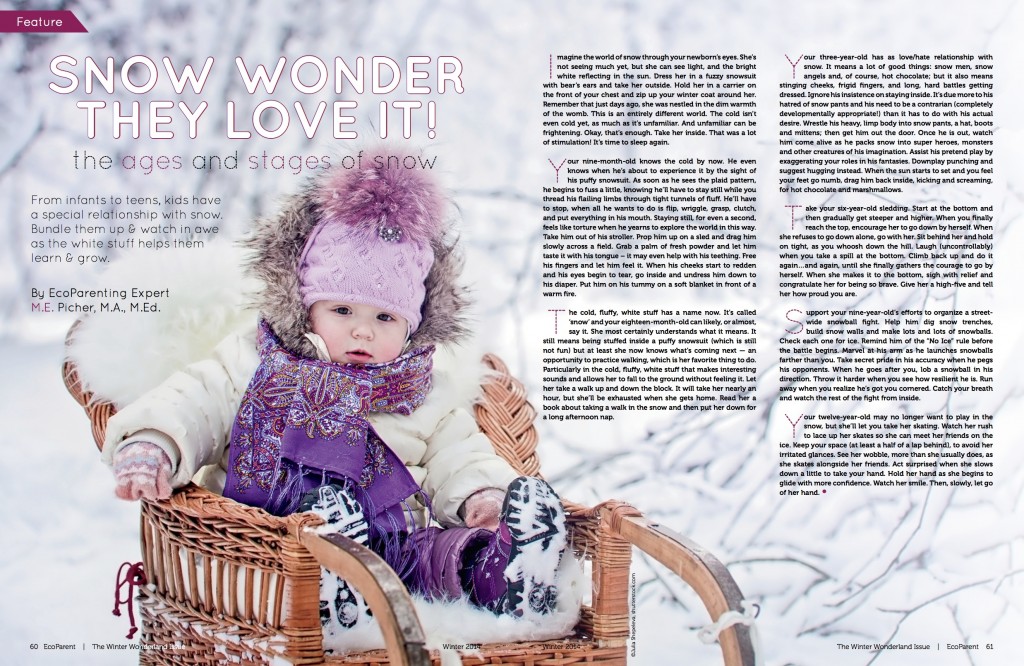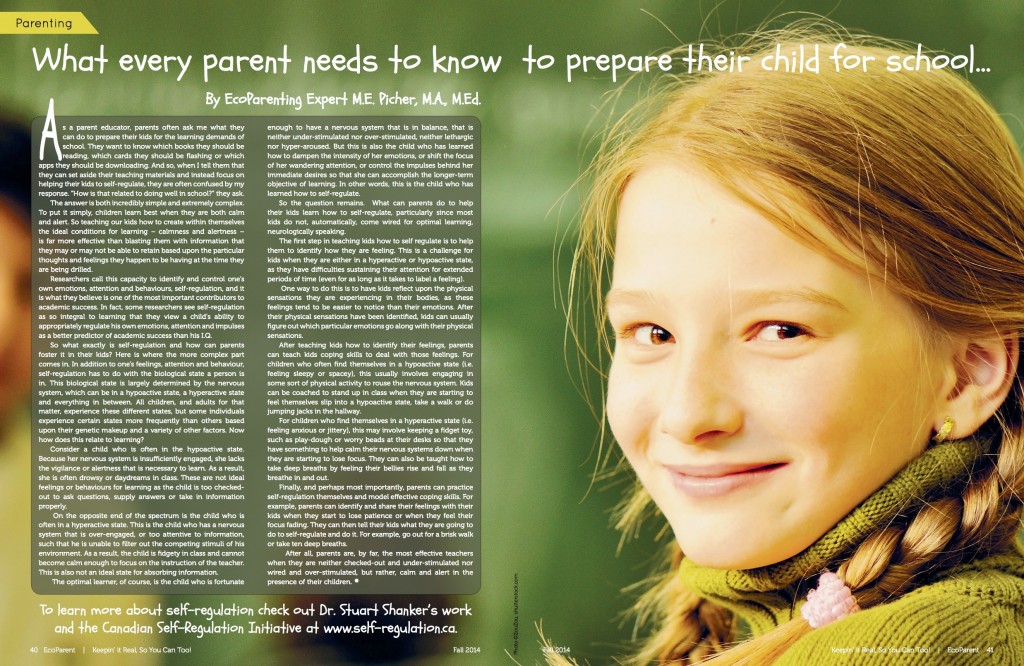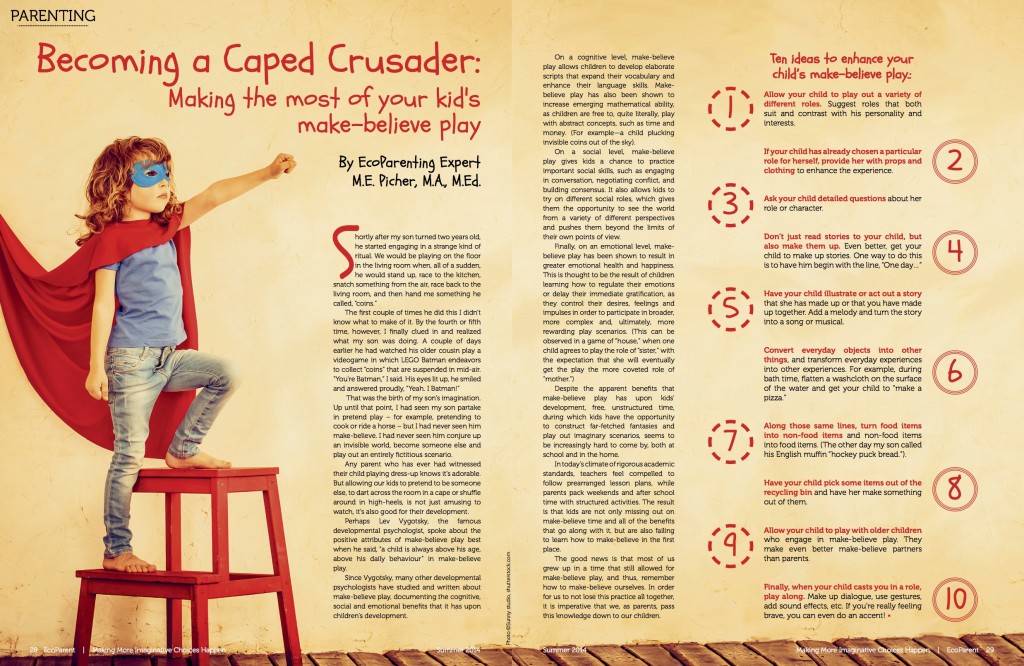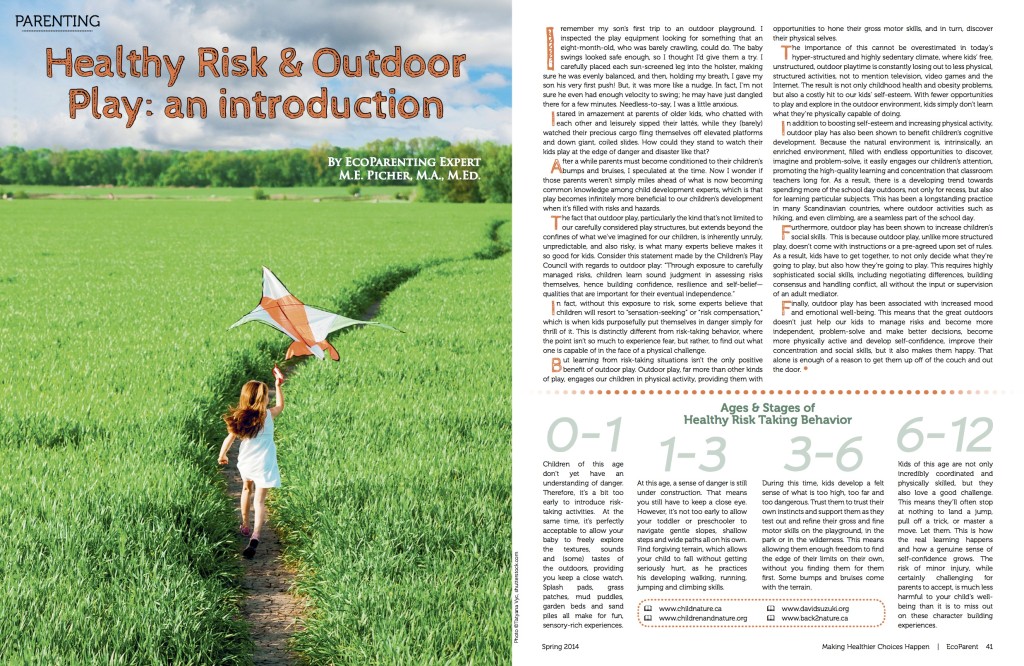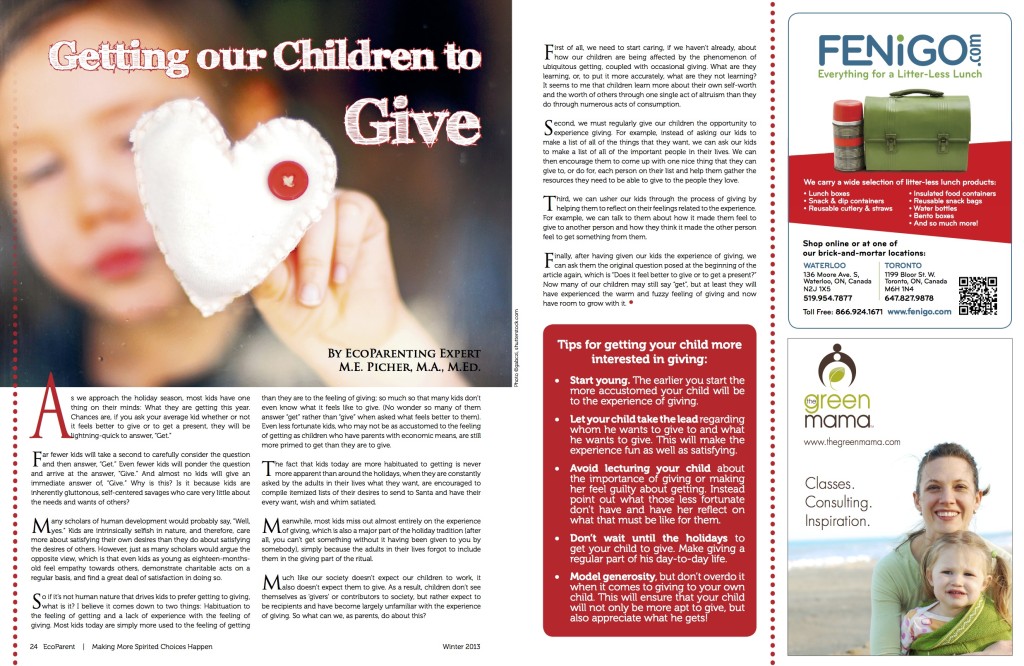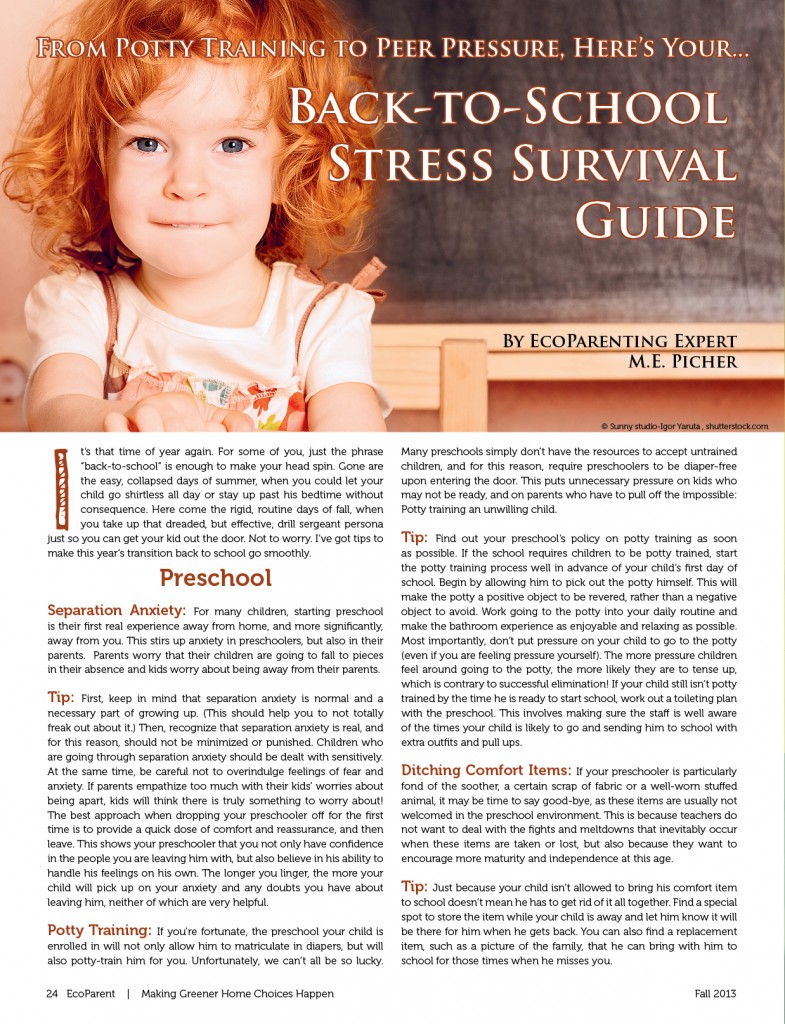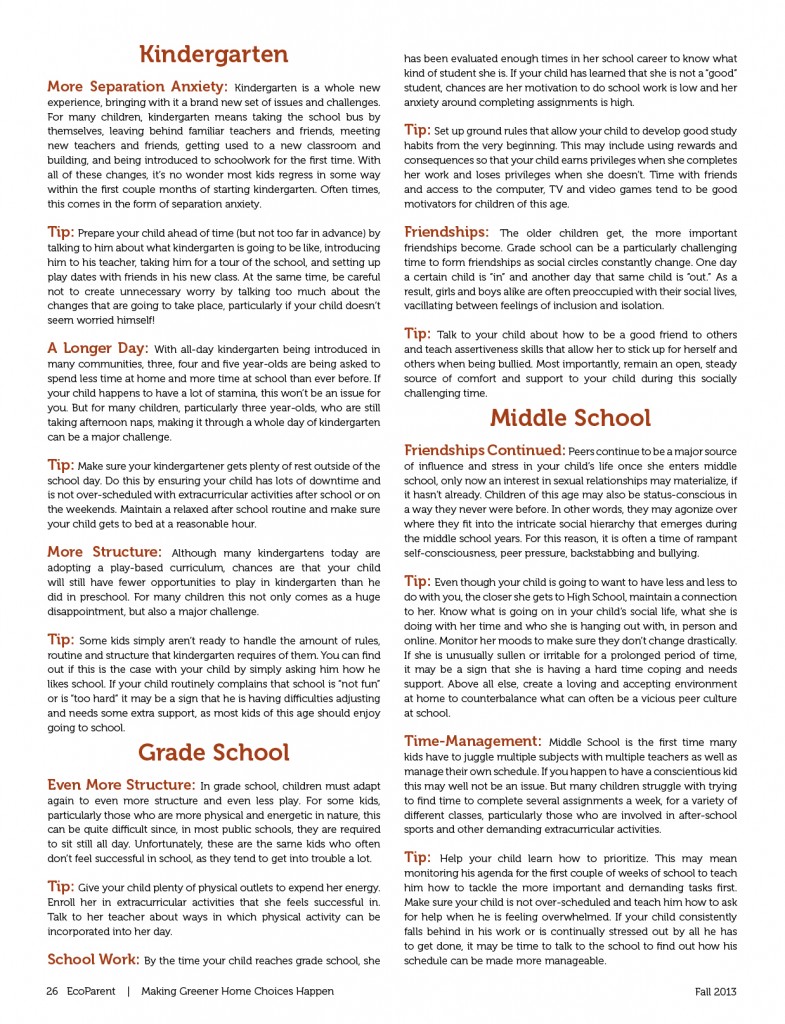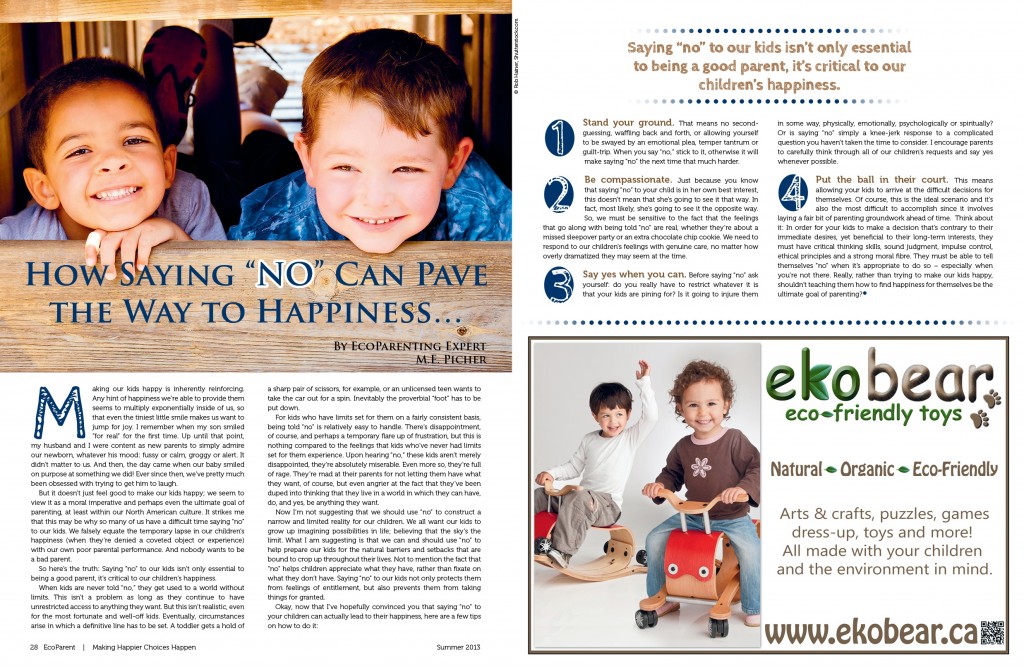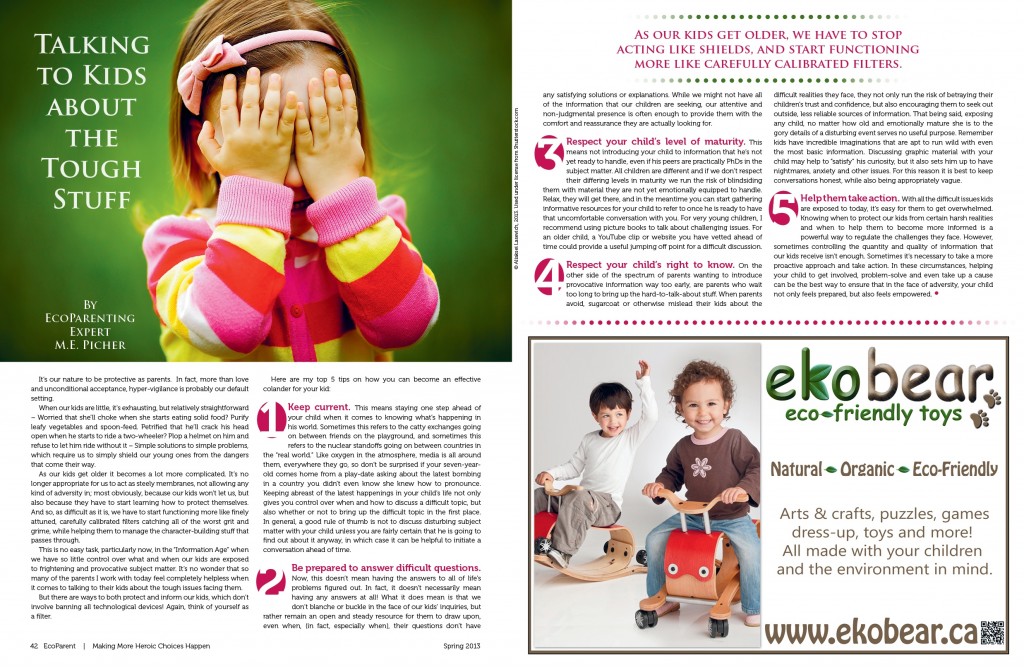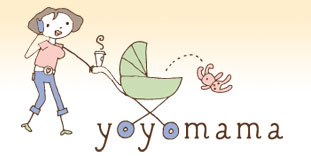FROM: UofT Magazine (link)
Mary Elizabeth Picher helps new parents better understand how little ones learn and grow
Mary Elizabeth Picher (MEd 2013 OISE) is the co-founder and educational director of Wholeplay, which offers parent-child classes that combine music, dance and play activities for babies, and child-rearing tips and insights for moms and dads. She also offers consulting services in areas such as eating and sleeping habits, potty training, oppositional behaviour and giftedness. Picher – who is completing a PhD in developmental psychology and education at OISE – runs the service with a team of experts in psychology, social work, performing arts and more. She is also mom to a four-year-old boy and a two-year-old girl.
How did the idea for Wholeplay come about?
I worked at a mental health agency in Toronto running a program for women who had experienced domestic violence and were parenting a child under age 3. The purpose of the group was to educate women on how their trauma experiences might affect their relationship with their child. I started noticing that other mothers wanted to do the program because they were interested in child development, but I had to turn them away, because they didn’t fit our criteria. I decided I wanted to work more preventatively with families in a way where I could educate parents before negative experiences happened.
You offer classes for kids up to age 3 and their parents where you share clinical insights and evidence-based strategies for things like encouraging children’s self-esteem, introducing solid foods and promoting better sleep. How do you make this research data accessible and relevant?
It’s been a lot of trial and error. I realized early on that while I find the nitty-gritty of attachment parenting [a parenting style emphasizing breastfeeding, co-sleeping, soothing touch and more to form a nurturing connection with a baby] to be fascinating, not everyone wants that level of detail. If you’re too academic, you lose people. I learned how to convey the information in broad strokes, and in a way that is interesting and provides value without making it boring or difficult to understand.
Six years after launching Wholeplay, your classes are offered at 15 places in Toronto – from community centres to child-friendly cafés. Why do you think your approach resonates with new parents?
Moms and dads want a level of discussion about parenting that goes beyond what kind of diaper to buy, but they also want something fun and stimulating for their children. There isn’t much else available that combines these two things. Also, I think parents today are more interested in child development, partly because they can access so much information about it on the Internet. Another reason is that a lot people nowadays have no experience being around babies until they have one – so they approach parenting the way they approach everything else, through study and information.
How did your U of T education shape your thinking about child development and influence your parenting education methods?
In a course on child and adolescent development at OISE, we talked a lot about the influence of culture on child development. If I had not taken that class, I probably would not look at parenting in the same way. Successful or effective parenting looks different in different cultures, so there’s no one right way. It’s a message I try to instil from the beginning in our classes, so that parents don’t feel like they will be judged. I try to bring into the classes openness and a respect for diversity.
What are the biggest highlights of what you do?
I love working with parents and babies, and talking about parenting and child development…. What makes this successful for me is seeing how different families are from when they start to when they finish. The parents are so much more confident, relaxed and able to enjoy the experience.
FROM: CBC TV – The National visits a Wee Hoots class!
FROM: Global News
A happy baby equals a happy parent at Toronto parent-child development centre
Wholeplay offers an informative and interactive learning environment for parents and their young children. Susan Hay has the story in this week’s Making a Difference.
TORONTO — The first year of a baby’s life is critical for development.
Bonding between parent and child is key to building a healthy relationship in early childhood and beyond.
At Wholeplay, parent-child development and wellness programs are offered to families in a fun and supportive way for young children up to the age of six.
“The research on early childhood development is very clear that the first couple of years are the most important,” says educational director and co-founder, M.E. Picher.
One of the many classes offered at Wholeplay is Baby Hoots — designed for parents who are interested in learning about their baby’s process during that important first year.
“Never doubt yourself and be able to trust your instincts as a mother,” says participant, Maria Li.
Wholeplay offers a space for parents to spend more time with their children out of the house while learning helpful skills in a nonjudgmental space.
“You can sometimes be vulnerable as a mom to so many opinions and you get them coming at you from everywhere, ” says participant, Laura Stavro-Christie.
“It’s really nice just to go and be able to see M.E. and ask a question and get the answer that is grounded in evidence and in research.”
The program helps guide parents to improve their child’s self-esteem and growth by teaching them about physical milestones that they should look for in their child’s development.
“We really focus on proving very high-quality information that’s evidenced-informed. So my background is in developmental psychology and education with a focus on early learning,” says Picher.
Each class includes a half-hour of music, play and dance activities, followed by a parent discussion focused on topics related to infant development.
“It all has to do with responsivity. So when a baby cries, the baby needs to know that his or her needs are going to be met in a responsive, accurate, and sensitive way,” says Picher.
“And if that happens, then the baby can develop trust, trust in the parent, but also trust in the world.”
The programs focus on helping parents cope with certain challenges and struggles and offers them a safe and encouraging place to share their stories with other parents who may have the same experiences.
“The fact that she’s holding her head up, noticing just how social she is and how much she loves music, how much she recognizes the songs that we sing now and all that, it’s great to see her sort of becoming a person,” says Stavro-Christie.
Each class is designed to give parents the opportunity to learn alongside their child and each class focuses on a new lesson or skill so the parents can take new information home with them.
“They develop connections that go beyond the class and that’s probably what I’m most proud of. The fact that I’m able to create an environment where parents feel safe enough to truly connect with one another,” says Picher.
FROM: CBC News interview with Wholeplay Founder M.E. Picher
FROM: This is Scarlett & Isaiah – Treehouse TV
—————————–
FROM: EcoParent – Winter 2015
—————————–
FROM: EcoParent – Fall 2014
—————————-
FROM: EcoParent – Summer 2014
————————–
FROM: EcoParent – Spring 2014
—————————-
FROM: EcoParent – Winter 2014
———————–
FROM: Savvymom.ca
————————————
FROM: EcoParent – Fall 2013
————————————
FROM: EcoParent – Summer 2013
————————————
FROM: Bunch – Spring 2013
————————————
FROM: EcoParent – Spring 2013
————————————
FROM: EcoParent – Winter 2013
——————————-
FROM: THE HUFFINGTON POST
————————————
FROM: SAVVYMOM
FROM: YOYOMAMA
FROM: THE LITTLE PAPPER

